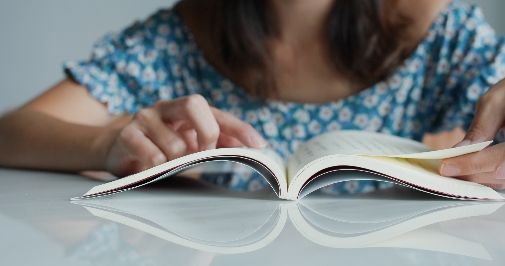

Posted on July 29, 2024
The reading and creative writing workshops are now part of Staying Put’s intervention and prevention efforts for women in the shelter.
As part of the Arts and Humanities Research Council funded project ‘Coercive Control: From Literature to Law’, Dr Hannah Roche from the University of York and Professor Katie Mullin from the University of Leeds worked with Bradford-based charity Staying Put to organise a series of workshops with women with lived experience of domestic and sexual violence.
The group has discussed novels and poetry by authors ranging from the Bronte sisters to Bernardine Evaristo, and the texts and excerpts have helped the women in the group recognize the signs and patterns of coercive control and process their own experiences.
A long history
Coercive control, which was not a crime until 2015, has a long history in both real life and imaginative writing. The experiences of fictional characters indicate that these acts of control have existed for centuries.
This group of women, from diverse cultural backgrounds, reported that reading about coercive control helped them feel connected to a wider network of victims.
Inspired by the workshop, the women wrote their own creative writing and shared it with the group. Women in the group reported that reading and writing about coercive control and acts of strength and solidarity had helped them access parts of their trauma that were “stuck,” moving forward and feeling “confident and worthy.”
Write as control
Dr Roche, from the University of York’s School of English and Allied Literature, said: “When we discussed extracts from Victorian novels, the women in the group were struck by how closely the experiences of certain characters, such as Charlotte Bronte’s Jane Eyre, resembled their own.”
“The fact that a woman in 2024 can recognize herself and her experiences in an 1847 novel speaks to just how long the patterns of behavior and timelines of coercive control have been established.
“In our fortnightly workshops, we have been thinking about writing as a form of control. It is perhaps not surprising that when the women began their creative writing, they gravitated towards poetry, particularly free verse, where the lines may break and they may refuse to be restrained. They chose to write without rules or regulations.”
intervention
Reading and creative writing workshops are now part of Staying Put’s intervention and prevention efforts for women in the shelter. The workshops have shown that creative writing can serve both therapeutic and educational purposes, helping to prevent future abuse.
Professor Malin, from Leeds University’s School of English, said: “Working with survivors through Staying Put has been a learning experience for Hannah and me. Listening to the women’s stories and reading their writings has given us a greater understanding of the impact of coercive control and we have been inspired by their courage and resilience.”
moving
Debbie Kester, digital communications manager at Staying Put, said: “Many of the women who take part in the group are still feeling the effects of domestic abuse, years after escaping it.
“As part of the workshops, these brave women were often discussing difficult topics but were given the confidence to share their thoughts and engage in the creative process in a safe and respectful environment. As they read the work of published authors and each other, I repeatedly heard the women say, ‘That could have happened to me’ or ‘That was my experience.'”
“It was inspiring to see the progress they were making on their healing journey. Not only did the workshops help them cope with severely traumatic experiences, but they also inspired them to learn more and expand their social circle by joining writing groups and attending poetry events.”
“The workshops are now part of our service offering and are offered to all women who attend our shelters.”
Samantha Martin
Deputy Director of Media Relations (Job Share)
Phone: Business +44 (0)1904 322029
email address
Tara Thomas Agency stands at the forefront of the entertainment industry, with years of experience dedicated to nurturing the most exceptional talents and successful acts.